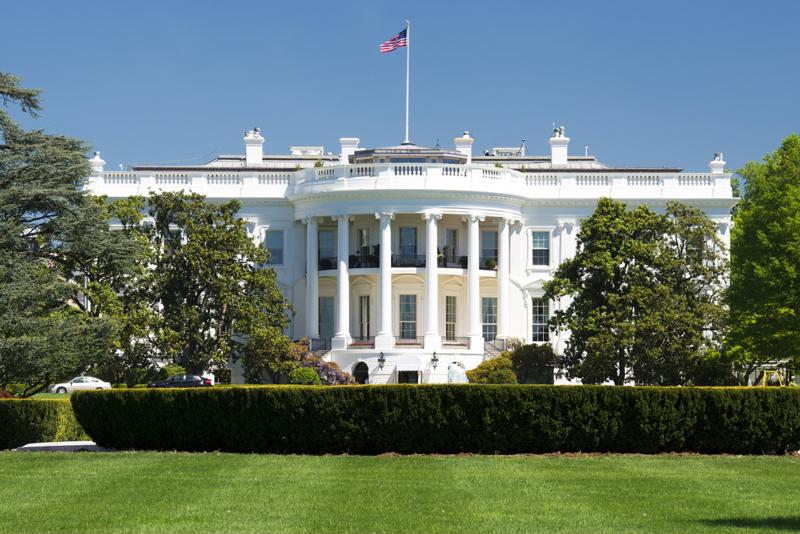If candidates such as Sen. Bernie Sanders, I-Vt., Donald Trump or Hilary Clinton are elected president, super PACs as we know them may cease to exist or, at least, change substantially, and now Clinton has introduced a campaign finance reform plan that takes aim at massive, opaque political donations.
Sanders and Clinton, running as Democrats, and Trump, running on the GOP ticket, have galvanized voters behind the idea that their voices aren't as important as anonymous political donors and haven't been since the 2010 Citizens United ruling. Now Clinton has announced an actual set of proposals to curb such donations and give small donors more of a say in the political process.
"We have to end the flood of secret, unaccountable money that is distorting our elections, corrupting our political system and drowning out the voices of too many everyday Americans," the former New York state Senator and Secretary of State explained in a statement.
Other candidates have also called for campaign finance reform – such as Sen. Rand Paul, R-Ky., and former Maryland Gov. Martin O'Malley, a Democrat – but none with voices that reverberate like those of Sanders, Trump or Clinton. With the latter's proposal comes early, concrete ideas about how prevent too much anonymous money flooding the political process.
"Voters generally don't favor large, anonymous donations in elections."
Clinton has a history with super PACs
It was Clinton's 2008 presidential campaign that was attacked by conservative group Citizens United in a documentary made to propel voters to avoid casting a ballot for her. That film led to the pivotal Supreme Court ruling that allowed for the creation of the numerous super PACs that dot the political landscape today. She has recently taken up this political history as a cause on the campaign trail, noting her personal connection to campaign finance reform and adding that the path to super PACs ended up "damaging our entire democracy," according to The New York Times.
The polls show that Americans are generally not in favor of large, anonymous donations in elections. The issue of campaign finance reform has often taken a back seat to others, such as immigration and how to approach Iran. Because of this, Clinton's recent announcement comes as a welcome change to individuals who have long been pushing for more focus on campaign finance reform.
"What she has proposed is both good policy and good politics," David Donnelly, the president of Every Voice, an organization that supports stricter rules on campaign finance, explained to The New York Times. "That's why Clinton should actively campaign on this platform and push these solutions to the center of the debate in the days, weeks and months to come."
Still, unlike Sanders and Trump, each of whom have stated they will not take donations from lobbyists or special interest groups, Clinton has been campaigning off of super PAC funds during the current election cycle. The "fight fire with fire" approach is one she has deemed necessary in order to place a Democrat in office, something which she has stated is essential to driving real campaign finance reform. Last month, the super PAC supporting Clinton, Priorities USA Action, said it had raised $41 million in 2015 in its efforts to push her to the White House.

The plan to reform campaign finance
Clinton's proposal will take several approaches to dampen big donors' influence:
- Sign an executive order that would mandate all federal contractors reveal their political donations.
- Push a Securities and Exchange Commission rule that would require publicly traded companies to share their political spending habits with investors.
- Appoint Supreme Court justices opposed to the 2010 Citizens United ruling.
- Make an effort to bar nonprofit groups who donate to political causes from keeping the names of their donors hidden.
- Set up a new federal matching funds system that would place emphasis on small donors.
The multi-pronged approach actually takes a page from an effort already underway. Attempts have been made in the past to establish a rule that would require publicly traded companies to reveal political spending to their shareholders, but thus far have not come to fruition due to opposition from business groups and Republicans, The New York Time noted. However, Robert Jackson Jr., a law professor at Columbia, believes that an SEC rule mandating publicly traded entities disclose political spending is much more likely to eventually pass into law than Clinton's campaign finance reform proposal.
"A lot of folks read today's announcement and with all due respect to the secretary and her team, 90 percent of those things aren't going to happen anytime soon," he told The New York Times.
It would be difficult for Clinton to push these reforms past a polarized Congress and in the face of influential business organizations. However, Clinton's proposal could very well receive support from voters, many of whom would like to see anonymous donations removed from the political process.

